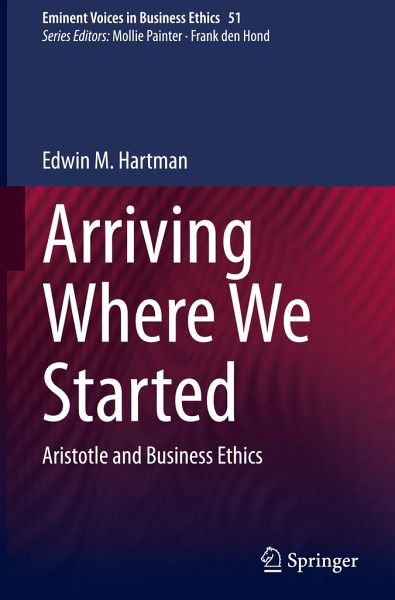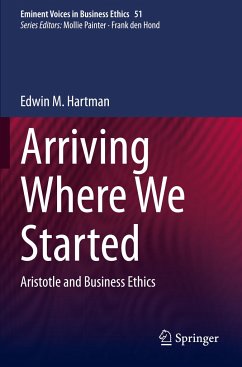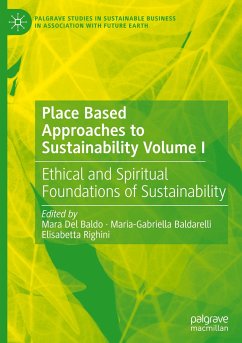
Arriving Where We Started
Aristotle and Business Ethics
Versandkostenfrei!
Versandfertig in 6-10 Tagen
38,99 €
inkl. MwSt.
Weitere Ausgaben:

PAYBACK Punkte
19 °P sammeln!
Edwin Hartman offers an account of his intellectual journey from Aristotle to organization theory to business ethics to an Aristotelian approach to business ethics. Aristotle's work in metaphysics and psychology offers some insights into the explanation of behavior. Central to this sort of explanation is characteristically human rationality. Central to successful organizations is characteristically human sociability. That human beings are by nature rational and sociable is the basis of Aristotle's ethics. Though a modern organization is not a polis in Aristotle's sense, it has good reason to t...
Edwin Hartman offers an account of his intellectual journey from Aristotle to organization theory to business ethics to an Aristotelian approach to business ethics. Aristotle's work in metaphysics and psychology offers some insights into the explanation of behavior. Central to this sort of explanation is characteristically human rationality. Central to successful organizations is characteristically human sociability. That human beings are by nature rational and sociable is the basis of Aristotle's ethics. Though a modern organization is not a polis in Aristotle's sense, it has good reason to treat people as rational and sociable on the whole, and thereby to preserve the organization as a commons of people linked by something much like Aristotle's account of strong friendship. Organizations that are successful in this respect, particularly those that deal with a nationally diverse workforce, may offer a far-reaching and attractive model.












